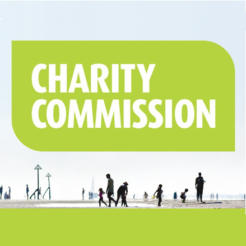Appeals to the Charity Tribunal are causing pressure on the Charity Commission’s time and resources and the regulator may seek to recover costs from charities as a result, a Charity Law Association conference heard last week.
There were 32 First-Tier Tribunal cases handled by the Charity Commission in the year to March 2015, compared to five two years earlier, Chris Willis Pickup, head of litigation for the Charity Commission told the conference.
He said the charity regulator would consider recovering costs from charities for staff time spent working on unsuccessful appeals.
“With 32 cases a year, it may get to a stage that if something is really using more of their fair share of resources and acting unreasonably, we might try and recover some of our costs. I wouldn't rule this out,” he said.
Willis Pickup said that even though the Commission has “rejigged” its operation to dedicate more staff for tribunals, the increase in workload was still stretching the regulator’s resources and thus it was looking at ways of working “more strategically”.
“We are look at ways that cases that don’t need to go to a court hearing can be brought to a conclusion before spending three or five days in a tribunal and using both our time and the charity trustees time and the tribunal’s time going through all that level of detail,” he said.
He also said that it “was not fair on the public purse” to have to pay for tribunal actions that were brought about due to a charity not fully understanding the law.
He also pointed out that of the 32 cases in 2014/15, 25 reached a conclusion with only one of the Commission’s decisions being overturned. The other 24 cases were either resolved in the regulator’s favour or withdrawn by the charity.
He said it was important for lawyers and their charitable clients to understand the differences between decision reviews and tribunals, as they made need to choose between the two at the outset.
“What is a decision review?" he said. "It's an internal process - a relatively quick, easy and cost effective way to challenge a decision, administered by my team. Litigation team deals with all the decision reviews,” he said.
“Sometimes you’ll need to decide between tribunal and decision reviews - due to time limits. You have 42 days to go to tribunal but three months to go to us.
“When we do a decision review, we would like you to present to us on behalf of your client. It’s not taken up very often. I would like to see more of that.”
Responding to a question about whether or not the Commission would consider allowing the decision review process to be used to challenge a new power to offer an official warning, Willis Pickup said it was something he was “very open” to.
“Are we going to use decision review with the official warning power?" he said. "The short answer is I don’t know. It’s not a power that is in the statute yet. I had a chat with Michelle [Russell, director of investigations, monitoring and enforcement at the Charity Commission] and she is certainly very open to it. It’s the process we’ve used for statutory notice period before.
“There is some confidence in the decision review process. It might be one way of allaying concerns in the sector. I’m certainly very open to it.”









